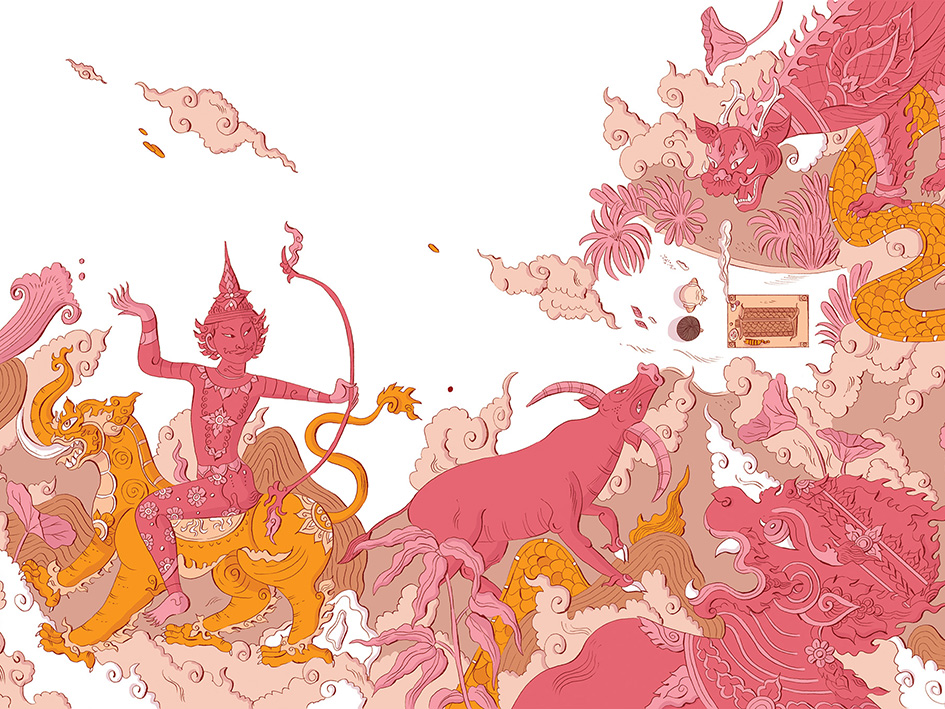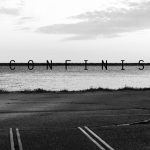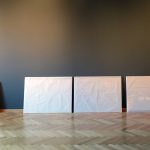“Particelle nella Giungla”
Doppia intervista
Elisa Macellari / Luca Pozzi
Milano, 19 febbraio 2021
__
Confinis
progetto a cura di Marco Tagliafierro
La mediazione culturale è una conditio sine qua non affinchè il confine possa risultare gestibile; per i due protagonisti di questa prima intervista reciproca, il limen coincide con la linea di contatto, è proprio la continua mediazione interdisciplinare a tenerli uniti.
LP – Ci siamo incontrati per caso quindici anni fa in un’opera di Jorge Peris.
Era una stanza piena di muffe all’interno del Palafuksas durante la Triennale di Torino.
Tu eri mediatrice culturale e mi hai accompagnato spiegandomi la mostra. Ora, per ironia della sorte, io mi definisco artista e mediatore interdisciplinare e tu sei diventata un’illustratrice.
Quanto credi che quell’incontro abbia cambiato le nostre vite?
EM – Radicalmente. Quell’incontro è stato il cardine di quello che sono diventata oggi. Non so spiegare bene come sia successo. Stava finendo l’inverno, era molto freddo ma splendeva un bellissimo sole. Mi ero laureata da poco all’Accademia di Belle Arti di Perugia e stavo cercando fortemente la mia strada.
Di quella mattina ricordo che avevo cercato di essere neutrale, di analizzare quello che avevi davanti, il titolo dei lavori, i materiali, lo spazio in cui erano collocati. Volevo che avessi gli strumenti per dedurre più che ricevere informazioni preconfezionate da me.
Mi sono sempre chiesta il tuo punto di vista, che cosa ti ricordi del mio racconto delle opere di altri artisti?
LP – Ricordo che mi correggevi: avevo scambiato l’opera di Jorge Peris per un ambiente di Olafur Eliasson. Poi vuoto, più niente, un sacco di nomi, luoghi lontani, un’opera di un artista, penso del Congo, ed una che nella mia mente doveva essere legata al Brasile…
ricordo che era una tripla proiezione immersiva che doveva simulare il tramonto alle coordinate del Sud America.
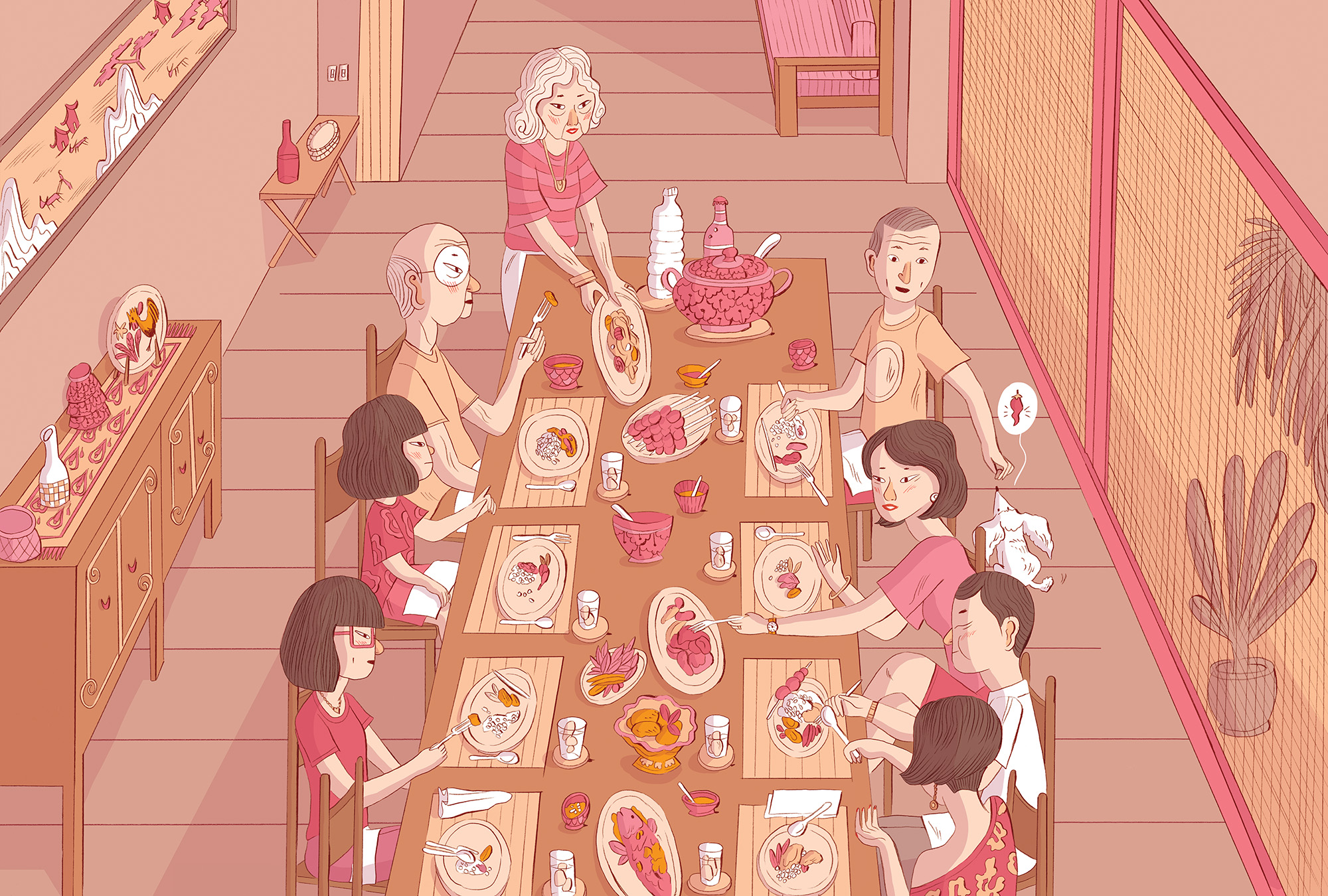
Elisa Macellari, Papaya Salad, BAO Publishing, 2018
Uno dei nostri primissimi viaggi, essendo tu italo-thailandese, è stato ovviamente nel sud est asiatico tra Laos, Cambogia e Thailandia. Due mesi dove, tra mille avventure, spedizioni nella giungla, grotte infestate da pipistrelli, statue dorate, il Mekong e febbri tropicali abbiamo persino rischiato di morire su un aereo con un’ala in fiamme, sopra ai cieli di Bangkok.
Credi nel destino?
EM – Certo che ci credo. Credo nei segnali e negli incontri. Poi spetta ad ognuno di noi saperli leggere. Quel viaggio è stato un susseguirsi di eventi straordinari. Eravamo aperti e ricettivi. Così tanto da farti prendere la Dengue. Chissà quale piccola zanzara ti ha punto, chissà dove eravamo esattamente, se sul Mekong o a Khao Yai, o magari di ritorno da Bangsarei. Non lo sapremo mai con certezza. E poi per noi il destino è qualcosa che va costruito, ci capita spesso di sbirciare il futuro prima che accada…
E poi per noi il destino è qualcosa che va costruito,
ci capita spesso di sbirciare il futuro prima che accada…
Ogni volta che abbiamo un grande dubbio interpelliamo sempre gli i-ching che ci aiutano a vedere con più chiarezza la risposta.
La Thailandia è un paese prevalentemente buddista, in cui le tradizioni e le credenze animiste sono molto forti nella cultura popolare. I miei parenti, come qualsiasi altro thai, hanno una casetta degli spiriti all’ingresso della propria abitazione.
Tu cosa ti sei portato a casa da quel viaggio?
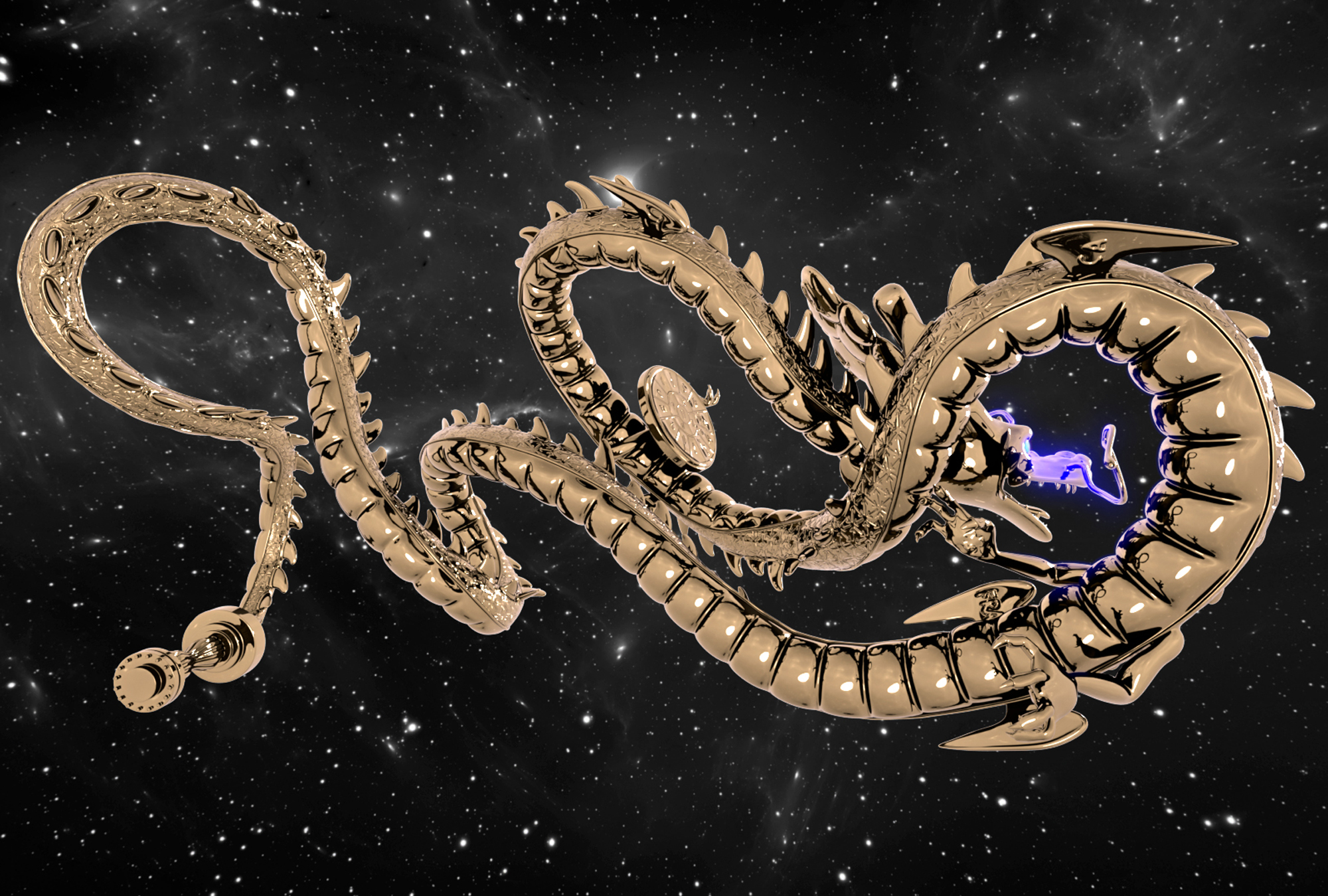
Luca Pozzi, Arkanian Shenron, 2020
LP – In primis la sensazione di averti capita meglio…Poi un immenso senso di gratitudine per essere ancora vivo e una grande sensazione di libertà. Libertà dallo stile di vita occidentale, libertà dagli schemi comportamentali in cui sono cresciuto. La consapevolezza che viaggiare nello spazio vuol dire anche viaggiare nel tempo e la voglia di risvegliare concretamente un senso latente di spiritualità che le mie nonne avevano seminato in me ma che ancora era rimasto dormiente. Sentire i monaci fare chanting nei templi che abbiamo visitato è stato come accendere un interruttore. Ormai sono dodici anni che sono buddista grazie a quel viaggio. Unendo questa pratica ai miei studi di fisica teorica una delle cose più sorprendenti che ho intuito è che esiste, alla base di tutto, una rete relazionale che si scambia informazione. Gli oggetti di per se non esistono, io e te in realtà non esistiamo, esiste solo la nostra relazione, la nostra interazione.
Gli oggetti di per se non esistono, io e te in realtà non esistiamo, esiste solo la nostra relazione,
la nostra interazione.
Ora con Sirio Atlas questo è ancora più evidente, la nostra interazione ha generato nostro figlio che a sua volta genererà altre interazioni in un effetto domino vertiginoso.
Cosa desideri per il tuo futuro?
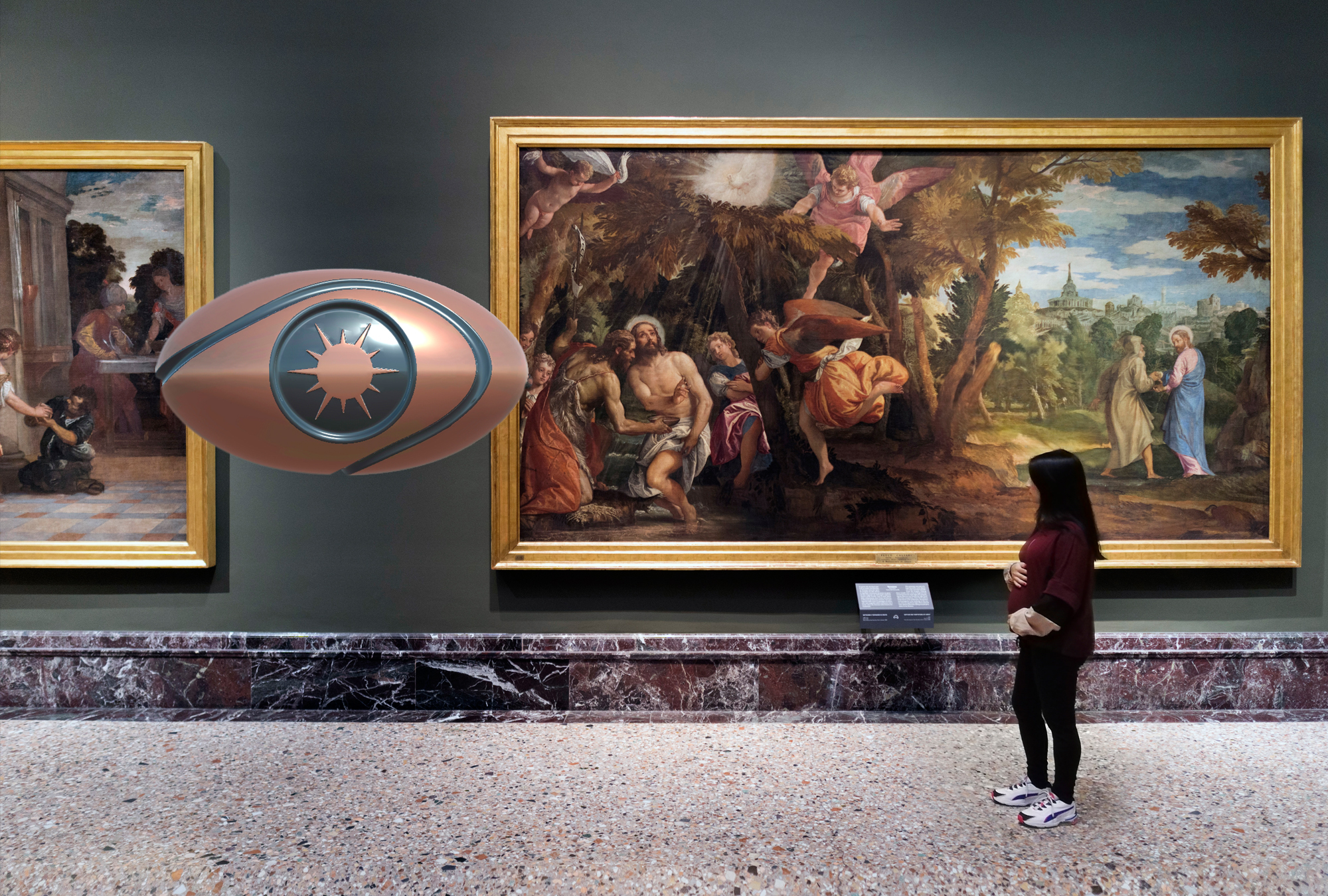
Luca Pozzi, Dark Collection, Brera, 2019
EM – Mi auguro che le interazioni che abbiamo generato si propaghino ancora e ancora. Attraverso Sirio che oggi ha nove mesi e quando lo guardo mi sembra di vedere veramente la sovrapposizione di noi due (mi fa uno strano effetto quella faccetta con gli occhi allungati e i tuoi colori). Attraverso il nostro lavoro, che spero davvero possa cambiare, anche in una piccolissima parte, la visione di qualcuno. E ancora e ancora…
Gli artisti hanno l’urgenza della creazione. E’ un lavoro senza sosta, senza orari, fuori dalle convenzioni.
Gli artisti hanno l’urgenza della creazione. E’ un lavoro senza sosta, senza orari,
fuori dalle convenzioni.
Come ti ha cambiato la paternità?
LP – Penso abbia rafforzato la mia stima in Cezanne. L’unico, tra gli artisti della sua generazione, che se ne è fregato totalmente di cosa accadesse a Parigi, al Moulin Rouge o a Mont Martre. E’ stato tutta la vita a guardare la sua Saint Victoire con la stessa donna accanto. Ha osservato come marcivano le mele, giorno dopo giorno, e nell’osservazione della quotidianità ha colto i segreti del linguaggio della natura. Nello stesso modo ho visto nascere il tuo primo graphic novel “Papaya Salad”, giorno dopo giorno, tavola dopo tavola. Conoscevo la storia di tuo prozio Sompong perché ho avuto il privilegio di conoscerlo prima che ci lasciasse qualche anno fa. Eppure il tuo racconto parla tanto anche di te. Sei un essere sospeso tra due culture lontane, una persona sensibile e riservata che entra sempre in punta di piedi nelle situazioni ma che dentro ha una determinazione e una costanza da asceta.
Quanto sono importanti la tua famiglia, il rapporto con tua madre, la memoria di una nonna che non hai mai conosciuto ma che sicuramente vive in te?
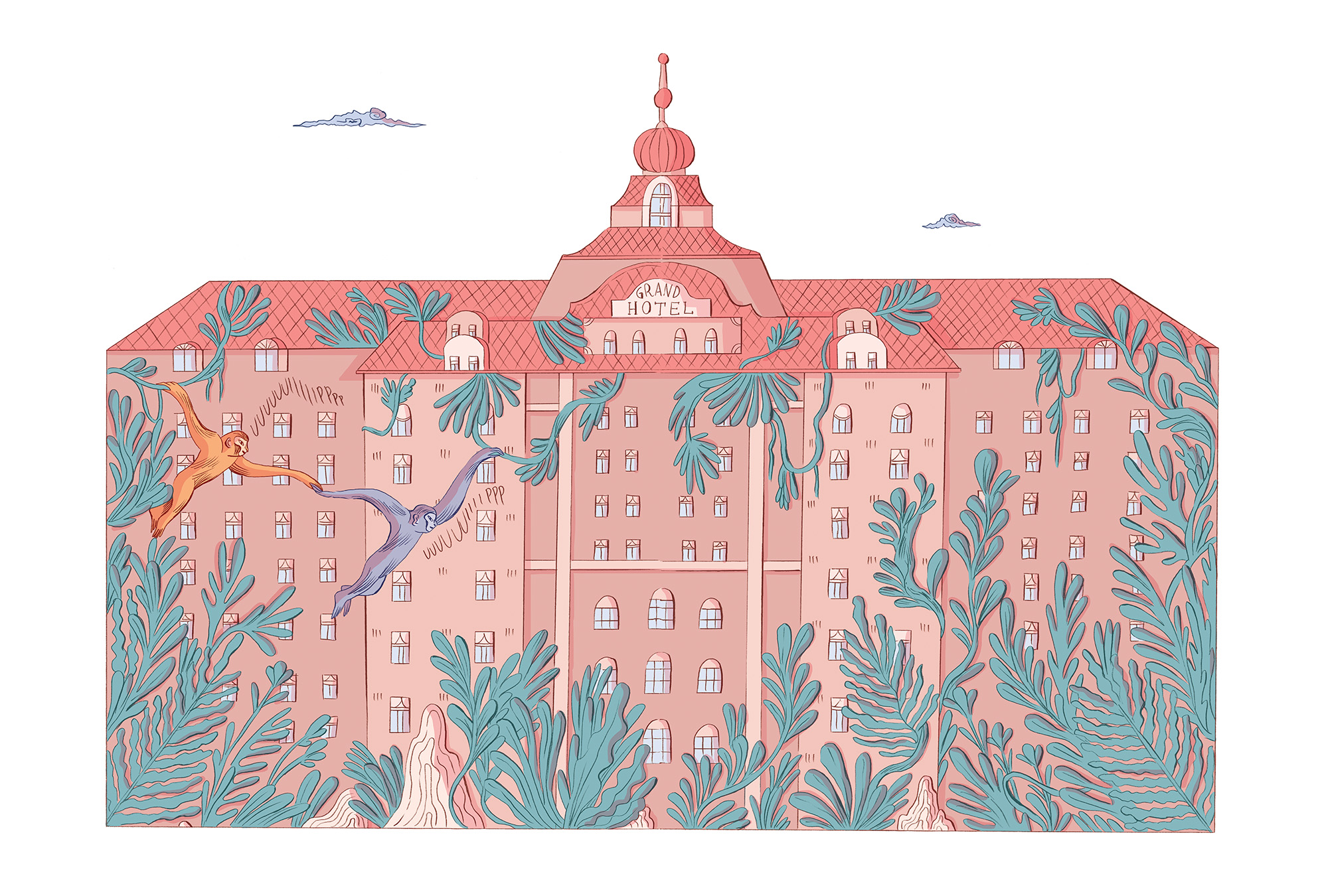
Elisa Macellari, Papaya Salad, BAO Publishing, 2018
EM – Ho un rapporto strano con la mia famiglia di origine. Da una parte sento che lì risiedono alcuni dei miei tratti distintivi: i miei occhi, i miei capelli, la mia schiena, i miei movimenti, le mie radici. Da un lato la cultura orientale, un territorio ricco di contaminazioni, un melting pot di molteplici identità. Non posso fare altro che accogliere tutto questo con i suoi pregi e le sue contraddizioni ed essere consapevole delle infinite possibilità che si sono ramificate in me. Dall’altra parte sono nata e cresciuta a Perugia, tra Giotto, il Perugino e tombe etrusche, arroccata su un colle, isolata da tutto. Oggi abbiamo creato la nostra famiglia che unirà le nostre storie e le nostre visioni.
La mia giungla e le tue particelle.
Oggi abbiamo creato la nostra famiglia che unirà le nostre storie e le nostre visioni.
La mia giungla e le tue particelle.
Come percepisci il tuo universo rispetto al mio? Come credi che si fondino?
LP – Tu sei capricorno e io acquario, tu sei piantata nella terra, io fluttuo nell’aria. Io posso immaginare mille possibilità diverse, tu quando ti convinci di una cosa non ti volti indietro. Tu mi tieni ancorato su un piano materiale, io ti ho introdotto all’astrazione. Penso che Giungla e Particelle siano un’associazione vincente da quando abbiamo scoperto che il suono di un onda gravitazionale prodotta da un buco nero assomiglia al canto dei gibboni della foresta pluviale.
Nella tua ricerca ma anche nella vita in generale, che poi sono la stessa cosa per noi, quanto è importante essere utili a livello sociale, seguire determinate regole, determinate logiche e quanto invece è importante sovvertirle? Quanto credi nei miracoli?
EM – Io sento di avere una responsabilità sociale e ci penso sempre quando scelgo o propongo progetti. Il mio lavoro può accompagnare la crescita di bambini, adolescenti e anche adulti. Mi piace cercare metafore visive e renderle emotive. La mia sovversione vuole toccare i sentimenti, non è fragorosa.
Mi piace cercare metafore visive e renderle emotive.
La mia sovversione vuole toccare i sentimenti, non è fragorosa.
La tua modalità invece è più mentale, mi ha sempre colpito il modo in cui tu leggi le opere, trovando dei linguaggi nascosti, collegando discipline diverse che apparentemente non si incontrano, trovando dei nessi spesso sconosciuti agli stessi artisti. Osservando come ragioni mi sono accorta che spesso le intenzioni sono più piccole di quello che poi restituisce l’opera ad occhi altrui.
Hai mai pensato di raccontare le connessioni che scopri?
LP – Innumerevoli volte.
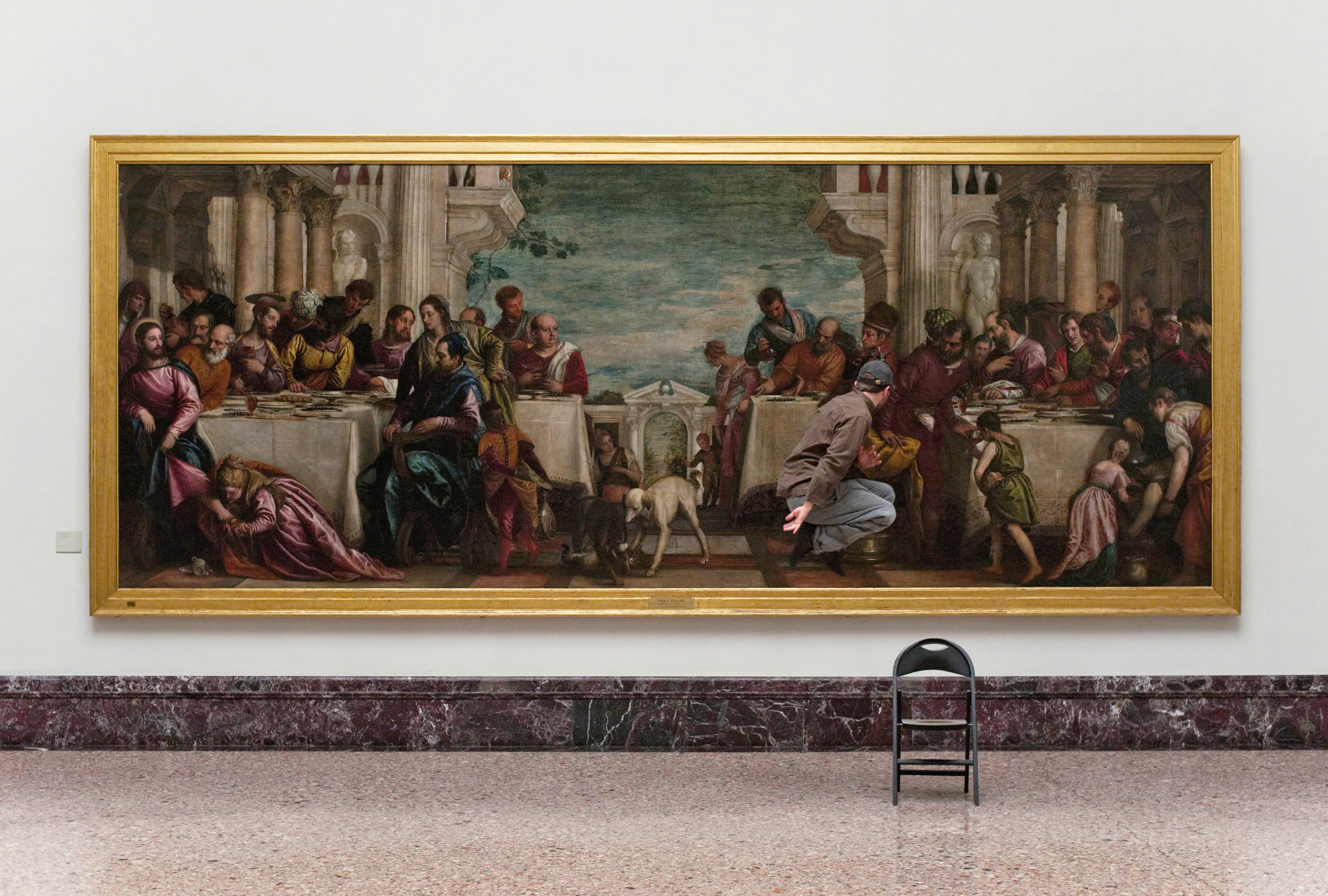
Luca Pozzi, Supersymmetric Partner, 2007-2009
“Particles in the Jungle”
Double interview
Elisa Macellari / Luca Pozzi
Milan, 19 February 2021
__
Confinis
project by Marco Tagliafierro
Cultural mediation is a sine qua non if the borders are to be manageable; for the two protagonists of this first mutual interview, the limen coincides with the line of contact; it is precisely this continuous interdisciplinary mediation that keeps them united.
LP – We met by chance fifteen years ago inside a work by Jorge Peris. It was a room full of mould inside the Palafuksas during the Turin Triennale. You were a cultural mediator and you accompanied me and explained the exhibition. Now, ironically, I define myself as an artist and interdisciplinary mediator and you have become an illustrator.
How much do you think that meeting changed our lives?
EM – Radically. That meeting was the cornerstone of what I have become today. I can’t really explain how it happened. Winter was coming to an end, it was very cold but the sun was shining brilliantly. I had recently graduated from the Academy of Fine Arts in Perugia and I was engaged in a challenging search for the road I should take. From that morning I remember that I had tried to be neutral, to analyze what was before our eyes, the title of the works, the materials, the space in which they were set out. I wanted you to have the tools to elicit more than merely the pre-packaged information from me.
I always wondered what was your point of view, what you remember of my account of other artists’ works?
LP – I remember you corrected me: I had mistaken the work of Jorge Peris for a setting by Olafur Eliasson. Then a void, nothing more, a lot of names, distant places, a work of an artist, I think from the Congo, and one that in my mind was linked to Brazil … I remember that it was a triple immersive projection that had to simulate the sunset at the coordinates of South America.
One of our very first trips, since you are Italian-Thai, was obviously in Southeast Asia including Laos, Cambodia and Thailand. Two months where, among a thousand adventures, expeditions in the jungle, caves infested with bats, golden statues, the Mekong and tropical fevers we even almost died on a plane with a wing on fire, above the skies of Bangkok.
Do you believe in fate?
EM – Of course I do. I believe in signs and in meetings. Then it is up to each of us to know how to read them. That trip was a succession of extraordinary events. We were open and receptive. So much so that you caught Dengue. Who knows what little mosquito had bitten you, who knows where we were exactly, whether on the Mekong or in Khao Yai, or maybe on our way back from Bangsarei. We’ll never know for sure. And thus for us destiny is something that has to be built, we often glimpse of the future before it happens… Whenever we have a huge doubt, we always consult the i-ching which helps us to see the answer more clearly.
And thus for us destiny is something that has to be built, we often glimpse of the future before it happens…
Thailand is a predominantly Buddhist country, where animist traditions and beliefs are very strong in popular culture. My relatives, like any other Thai, have a spirit house at the entrance to their home.
What did you bring back from that trip?
LP – First of all, the feeling of having understood you better… Then an immense feeling of gratitude for still being alive and a great sense of freedom. Freedom from the Western lifestyle, freedom from the behavioural patterns in which I grew up. The awareness that travelling in space also means travelling in time; and the desire to concretely awaken a latent sense of spirituality that my grandmothers had sown within me, but which still remained dormant. Hearing the monks chanting in the temples we visited was like flipping a switch. I have been a Buddhist for twelve years thanks to that trip. Combining this practice with my studies of theoretical physics one of the most amazing things I’ve realized is that there is, behind it all, a relational network that exchanges information. Objects per se do not exist, you and I do not actually exist, there is only our relationship, our interaction.
Objects per se do not exist, you and I do not actually exist, there is only our relationship, our interaction.
Now with Sirio Atlas this is even more evident, our interaction has generated our son who in turn will generate other interactions in a dizzying domino effect.
What do you want for your future?
EM – I hope that the interactions we have generated will propagate again and again. Through Sirio who is now nine months old and when I look at him I seem to really see the overlap of the two of us (that little face with the elongated eyes and your colouring has a strange effect on me). Through our work, which I really hope can change, even in a very small part, someone’s vision. And again and again… Artists have the urgency of creation. It is a non-stop work, without timetables, outside conventions.
Artists have the urgency of creation. It is a non-stop work, without timetables, outside conventions.
How has fatherhood changed you?
LP – I think it strengthened my respect for Cezanne. The only one, among the artists of his generation, who totally didn’t give a damn about what happened in Paris, the Moulin Rouge or Montmartre. He studied the same Sainte Victoire all his life with the same woman at his side. He observed how the apples decayed, day by day, and in observing everyday life he grasped the secrets of the language of nature. In the same way I saw your first graphic novel “Papaya Salad” born, day after day, panel after panel. I knew the story of your great uncle Sompong because I had the privilege of knowing him before he passed away a few years ago. Yet your story also speaks a lot about you. You are a being suspended between two distinct cultures, a sensitive and reserved person who always tiptoes into situations but within you have the determination and constancy of an ascetic.
How important are your family, the relationship with your mother, the memory of a grandmother you’ve never met but who surely lives in you?
EM – I have a strange relationship with my family of origin. On the one hand I feel that some of my distinctive traits come from there: my eyes, my hair, my back, my movements, my roots. On the one hand, oriental culture, a territory rich in intermingling, a melting pot of multiple identities. I can’t help but welcome all this with its strengths and contradictions and be aware of the infinite possibilities that have branched out in me. On the other hand, I was born and raised in Perugia, between Giotto, Perugino and Etruscan tombs, perched on a hill, isolated from everything. Today we have created our family that will unite our stories and our visions. My jungle and your particles.
Today we have created our family that will unite our stories and our visions. My jungle and your particles.
How do you perceive your universe compared to mine? How do you think they blend?
LP – You are Capricorn and I am Aquarius, you are planted in the earth, I float in the air. I can imagine a thousand different possibilities, you when you convince yourself of something you do not look back. You keep me anchored on a material plane, I have introduced you to abstraction. I think Jungle and Particles are a winning association since we discovered that the sound of a gravitational wave produced by a black hole resembles the song of rainforest gibbons.
In your research but also in life in general, which for us are the same thing, how important is it to be socially useful, to follow certain rules, certain logics and how important is it to subvert them? How much do you believe in miracles?
EM – I feel I have a social responsibility and I always think about it when I choose or propose projects. My work can assist the growth of children, adolescents, even adults. I like to look for visual metaphors and make them emotional. My subversion wants to touch feelings, it is not thunderous.
I like to look for visual metaphors and make them emotional. My subversion wants to touch feelings, it is not thunderous.
Your modality, on the other hand, is more mental. I have always been struck by the way you read artistic works, finding hidden languages, connecting different disciplines that appear to have no meeting-point, finding connections that are often unknown to the artists themselves.. Observing your reasoning, I realized that often the intentions are smaller than what the work of art then offers to the eyes of others.
Have you ever thought about talking about the connections you discover?
LP – Innumerable times.

